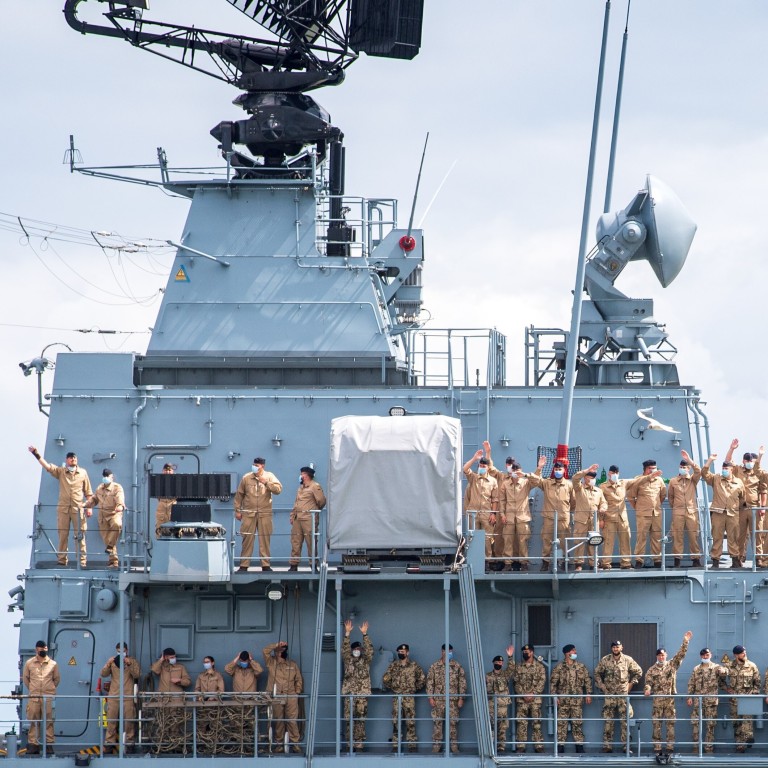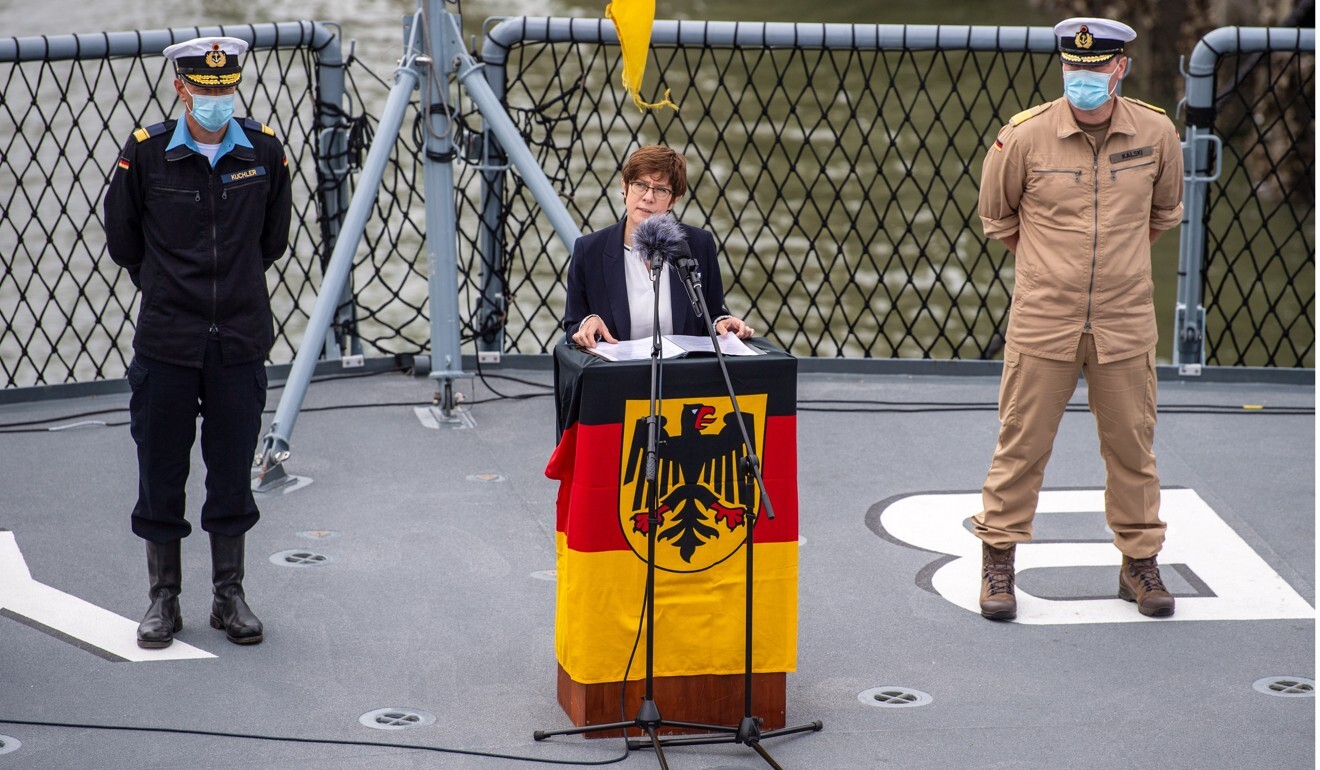
German warship heads for South China Sea as it deploys on six-month Indo-Pacific mission
- The Bayern will sail to Singapore, South Korea and Australia during the mission to strengthen Germany’s presence in the region
- Crucially, the frigate will pass through the contested South China Sea in December, but is expected to stick to common trade routes
Germany dispatched a frigate to the Indo-Pacific region on Monday for the first time in almost 20 years, in a move that could put strain on Berlin’s delicate relationship with Beijing.
“The message is clear: we are standing up for our values and interests together with our partners and allies,” said Defence Minister Annegret Kramp-Karrenbauer ahead of the ship’s departure.
“For our partners in the Indo-Pacific, it is a reality that sea routes are no longer open and secure, and that claims to territory are being applied by the law of might is right,” she added.
Defence ministers talk ahead of German frigate’s South China Sea crossing
Yet Kramp-Karrenbauer insisted the mission was not directed against any particular country, and noted that Germany had offered to visit a Chinese harbour “in order to maintain dialogue”.
Officials in Berlin have said the German navy will stick to common trade routes. The frigate is not expected to sail through the Taiwan Strait either.
The ship will also take part in the EU’s Atalanta anti-piracy mission in East Africa and help monitor UN sanctions against North Korea.

“The Indo-Pacific is where the shape of the international order of the future will be decided. We want to help shape it and take responsibility for the rules-based international order,” Foreign Minister Heiko Maas said on Sunday.
Beijing’s actions in the South China Sea have long fuelled tensions with the West, with US Defence Secretary Lloyd Austin emphasising last week that China’s claims have “no basis in international law”.
China claims almost all of the resource-rich sea, through which trillions of dollars in shipping trade passes annually, and dismisses competing claims from Brunei, Malaysia, the Philippines, Taiwan and Vietnam.
British navy ‘shows global ambitions’ with South China Sea mission
Germany, a key US ally, is usually reticent to take a military role on the international stage, and has often urged a less confrontational relationship with Beijing.
Additional reporting by Reuters

.png?itok=arIb17P0)